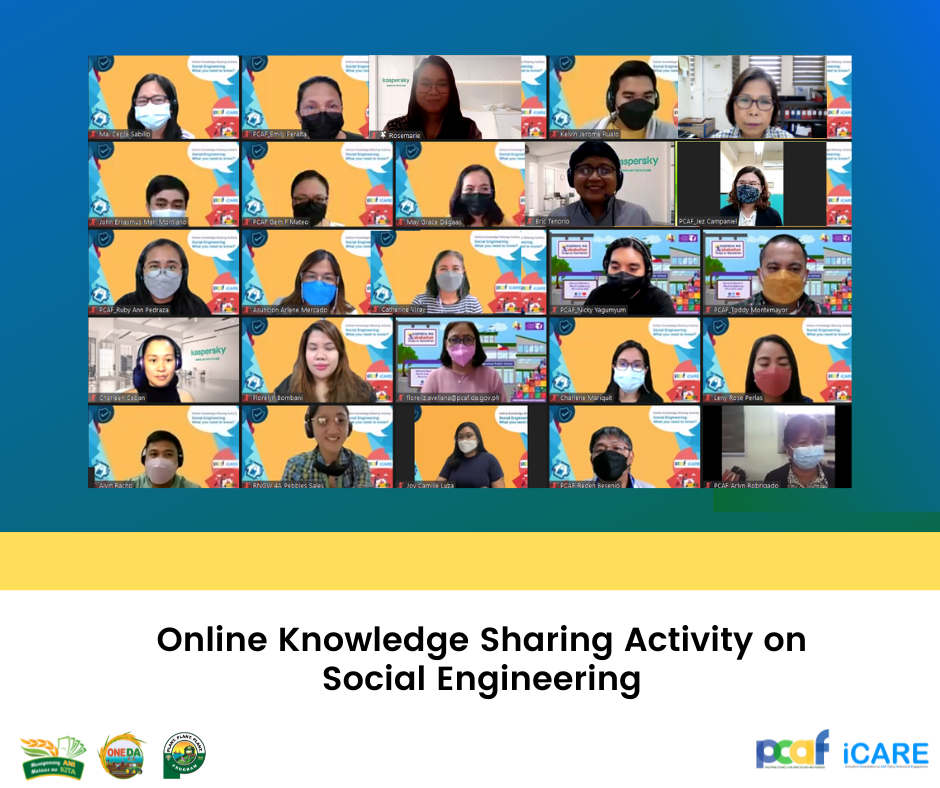
In support of promoting safer data-sharing within and outside the workplace, the Philippine Council for Agriculture and Fisheries (PCAF) conducted a virtual knowledge-sharing activity on Social Engineering on March 18, 2022.
The activity aims to enhance awareness among PCAF employees on social engineering, the art of deceiving users to act unknowingly against their and/or the agency’s best interests such as disclosure of confidential information or use of malware-infected websites.
With the adoption of alternative work arrangements and digital transactions in the height of the pandemic, many Filipinos became used to communicating or transacting online, putting them at risk of cyber threat attempts.
In fact, the Philippines ranked fourth with the most web threats detected globally in 2021, according to Kaspersky Security Network.
Web threats are attacks via browsers. Cybercriminals normally use drive-by downloads and social engineering to try to spread malware to devices of internet users.
In the same year, the National Computer Emergency Response Team of the Department of Information and Communications Technology recorded a total of 1,174 cyber security threat incidents reported by government and private institutions.
Corporate Communication Manager for Southeast Asia at Kaspersky Rosemarie Gonzales-Roy reminded PCAF participants to be mindful of clicking links and pop-up advertisements in different platforms as well as downloading mobile and computer applications. She also suggested to make sure that anti-virus software is always updated to prevent potential hacking of information.
On the other hand, as part of the celebration of the National Women’s Month, Roy also discussed how digital Filipinas can keep themselves and their electronic wallets safe online. Aside from that, the Pre-Sales Manager for the Philippines at Kaspersky Bric Adam Tenorio also shared how to spot social engineering attacks. | JCL











